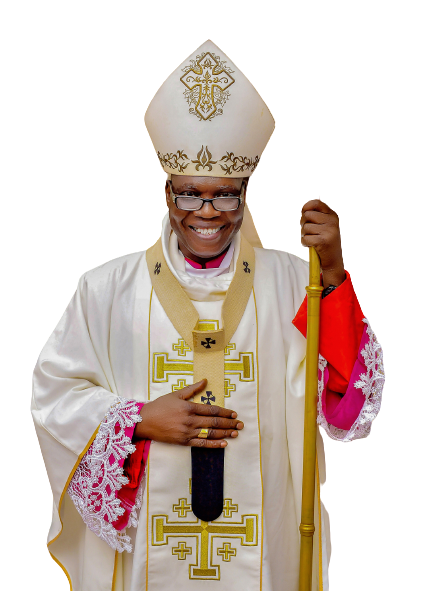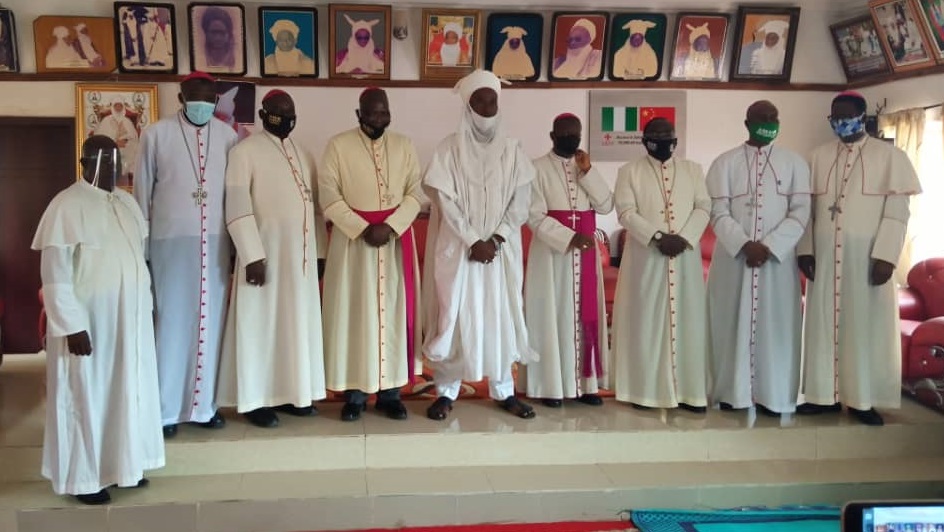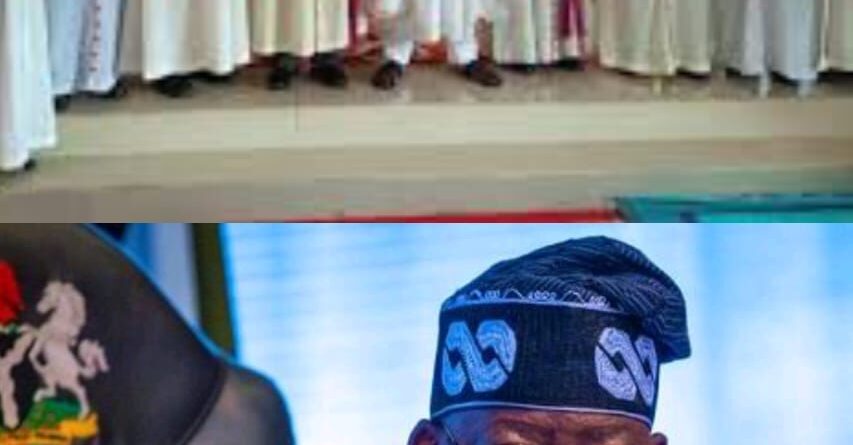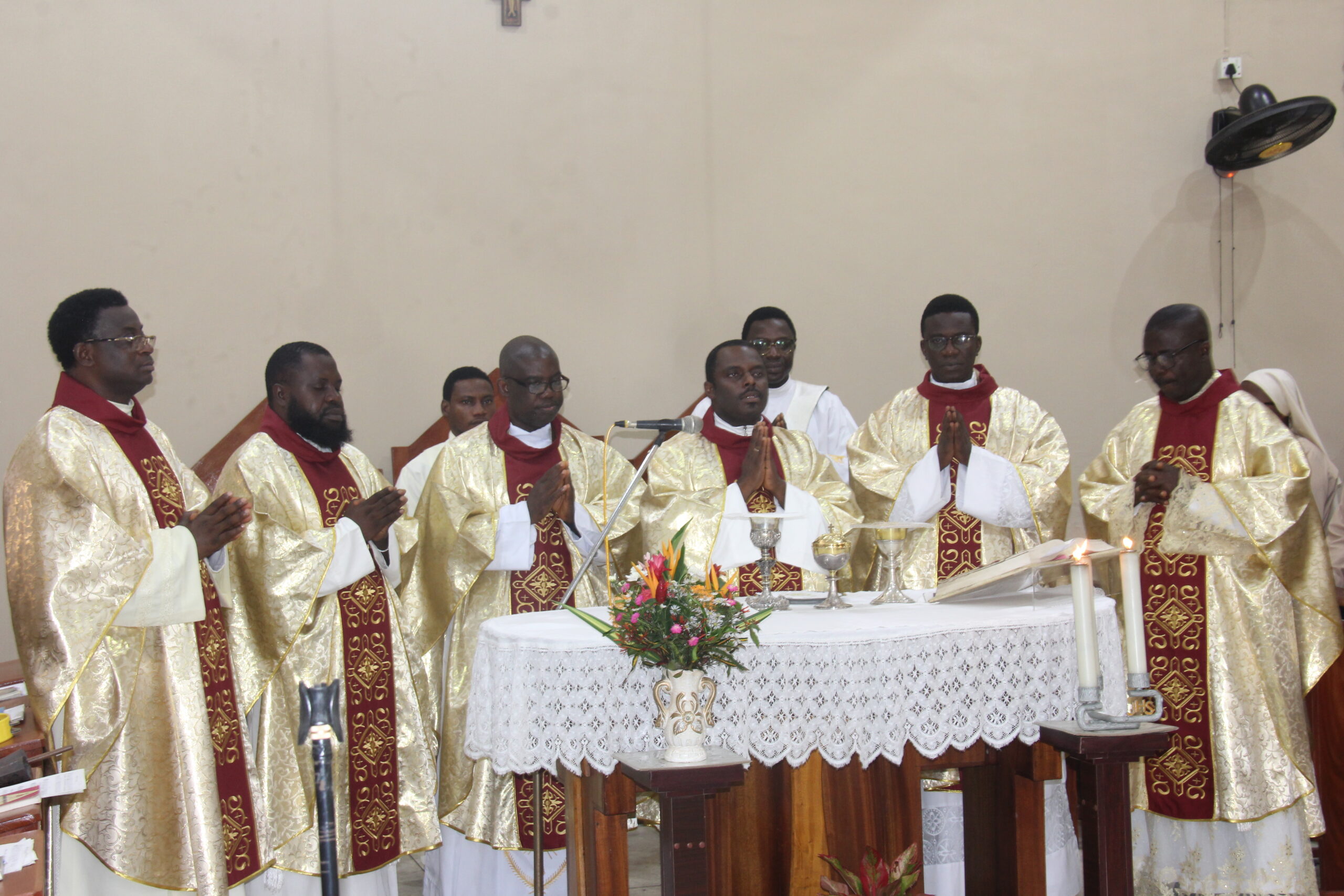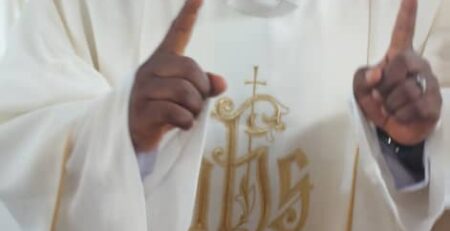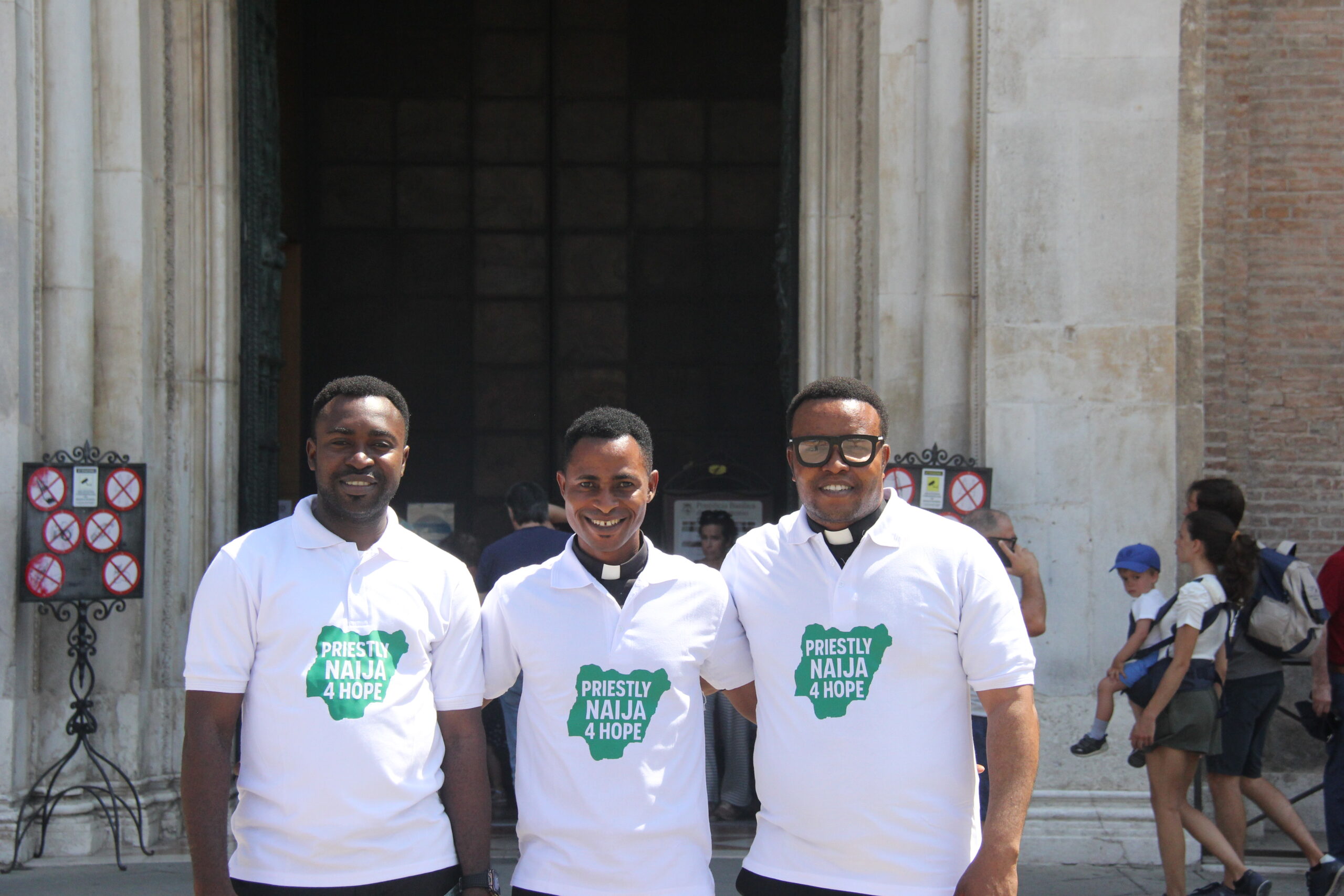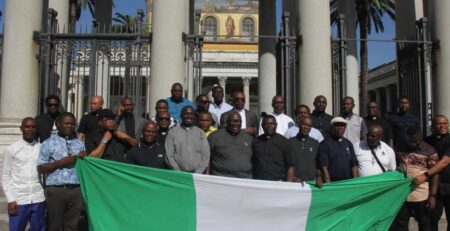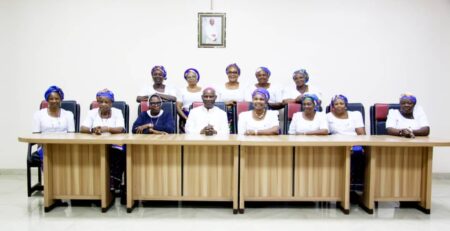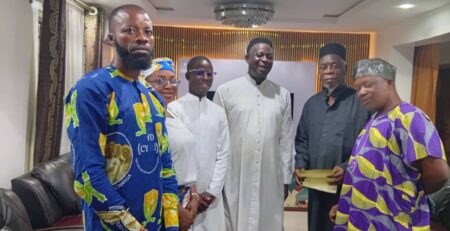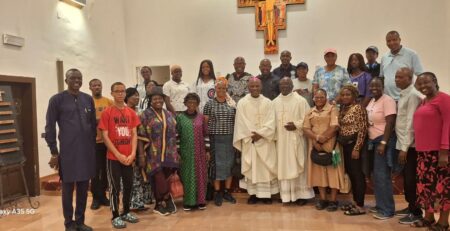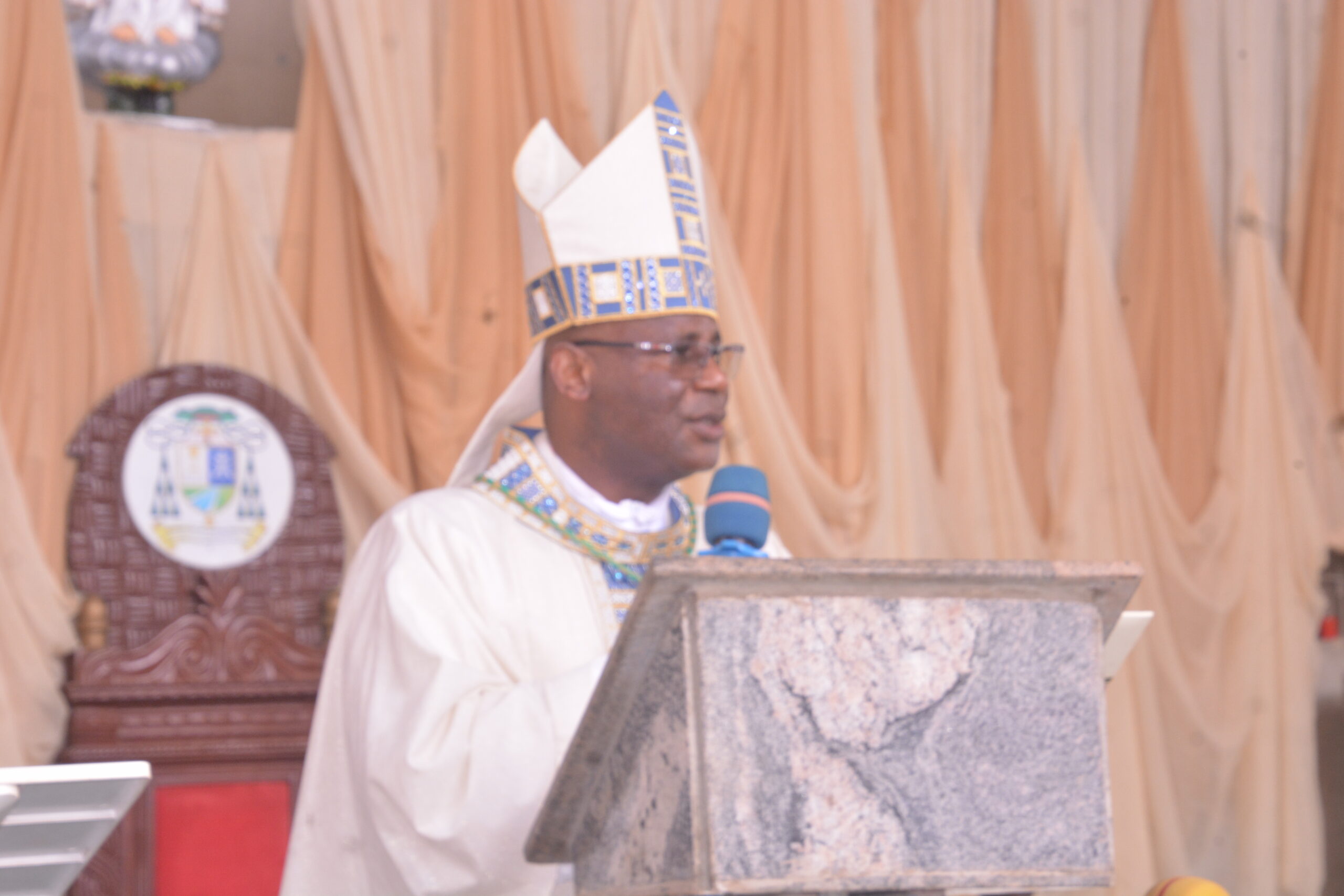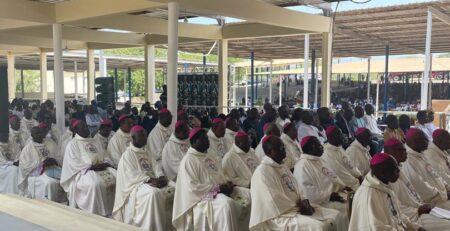“Decongest presidential fleet and suspend purchase of new plane”… Catholic Bishops yell out at Tinubu
The Partner Newspaper
At the conclusion of the plenary of the Catholic Bishops of the Kaduna Ecclesiastical Province (KEP) held on Monday, 11th August, 2024, they released a communique titled “AFTER THE PROTESTS: WHAT NEXT FOR NIGERIA’S DEMOCRACY?” Below is the full message as released by the Province.
1: As our dear nation now looks back over the loss of lives and the destruction of property following the protests, many sober questions come to our minds. is not time to look around at who to blame, yet, the greatest challenge for us in to chart a future, drawing lessons from our collective losses as a people. We did not lose the lives of our people fighting a foreign force. Those whose businesses have been destroyed did not start a fight nor were they guilty of any crime they committed against the nation or their neighbours. Sadly, this is the result of an unplanned and unanticipated outcome that we were warned against.
2: Nevertheless, our challenge now is to see if we can turn these losses into building blocks for a greater nation by the lessons we learn. We all accepted that the right to protest was a fundamental right enshrined in our Constitution and that indeed, these freedoms, when used responsibly can help us learn many lessons. Ahead of these protests, many voices called for calm and argued that these grievances could be channeled differently. The dates of the protests had been set and the lines had also been drawn. The protesters kept to their dates despite some ugly incidents. A protest challenges law and order and thus, peaceful protests demand that both the protesters and security agencies understand their roles to forestall a breakdown of law and order.
3: The protests exposed the fault lines in the life of our nation. They exposed our politics, our ethnic or regional challenges, our religious differences and indeed, the depth of our appreciation of the meaning of Democracy and its ideals. The protests exposed the levels of our maturity, our willingness to make sacrifices and our decision to put national interests above other personal; religious or regional interests. In all, we note that a majority of Nigerians across the states decided not to participate in the protests. Yet, the minority had their way, suggesting that there were no winners and losers as such. Everyone and every side asserted their rights. Without the deaths and the destruction, this could have counted as a sign of the slow maturity of our democracy. Yet, we can still learn.
4: We must restate the fact that we have chosen Democracy as the system of government under which we wish to live and be governed. We must therefore learn the rules of engagement. There are processes for installing, supporting or ejecting government policies. Being a representative form of government, we se political parties as the platform for contesting for power. We the ordinary people, by our votes, delegate our hopes and fears to others to act on our behalf. We expect them to listen to our voices and security and welfare.
- Looking back, those who govern on our behalf must ask why we came to thin sad point. The political class and the party in power must take some of the responsibility. They must ask whether there are things they could have donz differently. There is no doubt that the party in power must ask itself whether it has acted in the interest of the people in the last year. Could the conditions for the protests have been avoided? In other words, despite trying to administer good medicine, did the doctor pay attention to the patient’s ability to tolerate the treatment? Has the government been derelict in listening to the voices of the poor?
6: Two key issues have brought the nation to this sad situation. First, is the issue of the unresolved security situation across the country. Banditry continues unabated with citizens still painfully vulnerable to the barbarism of the bandits and criminals across the country. We believe that far more could have been done to take the war to these criminals who have declared war on our country. Being an agrarian society, the inability of our farmers to go, to their farms has created the condition for the ravaging hunger across the land. Second, is the removal of oil subsidies without the attendant clarity of how to turn these huge resources towards ameliorating the pains of our people. Rather than plough the huge volume of money to change the fortunes of our people, we have seen the federal, state and legislative arms of government turn this fortune only to their own welfare. We have seen a culture of reckless and extravagant expenditures that bear no relevance to the lives of ordinary people.
7: Arising from this, we appeal to the President to immediately send out some signals that show concrete appreciation of the circumstances that have created the conditions for the protests. Policy reversals are not a sign of weakness but evidence of a listening, humane and caring government which appreciates the voices of its people. As St. Paul says; When I am weak, then I am strong (2 Cor. 12: 10). The President must not listen to those hawks who see the protests as an affront to his government. Therefore, we appeal to him to identify some quick wins that can create a win-win scenario. It would be a fatal mistake to see those who protested as unpatriotic citizens. Those who broke the law and their sponsors must be identified and punished appropriately. We therefore suggest the following:
8: The President should, by appointments, find a way of bringing in competent Nigerians across party lines to help further national cohesion. We propose that he decongest the Presidential fleet, suspend or rethink the idea of purchasing a new plane for himself, and continue to tighten the belt on public expenditure. Looking inward, we encourage the president to liaise with local industrialists to widen the net for employment and self-sufficiency. In the medium and long term, the President should ban the use of foreign cars by all public officers. These policies can inspire confidence in our people. Rather than hiring non- state actors to pacify people, politicians must engage their people directly.
- We encourage the President to focus on the ideals of Democracy by building consensus rather than the temptation to search for enemies. Having come from a tradition of protest, the President should appreciate that these protests do not undermine a country. However, leaders of faith communities and civil society must also sharpen their tools and capacity for advocacy. The value of protests is in direct proportion to the quality of the social fabric of a given society. When we have a social fabric weakened by illiteracy, poverty and corruption, these protests can provide a cure that is worse than the disease. So, we must seek other options for engaging the government as the need arises.
10: Finally, as the holy book says; There is a time for everything under the sun (Eccl: 3: 1). In our case, there is a time for protesting and a time to stop protesting. With the protests behind us, the challenge is for us to look at the mistakes and learn the lessons. The greatest lesson from this protest as well as others, is the law of unintended consequence, namely, the fact that with the most noble of intentions, the simplest things can spin out of control. In combatting bad governance or engaging the authorities, we must learn to explore other options that exist even in our cultural settings to express our disagreements. The world is now multipolar and many other nations are willing to take advantage of any situation. Our voices must be heard as we deepen our Democracy but this must be done within the tenets of law and order. Building strong institutions requires that we learn our lessons and commit ourselves to working together. God bless our dear country.
Archbishop Matthew Ma-Oso Ndagoso Metropolitan Archbishop of Kaduna Chairman of, KΕΡ
Bishop John Namaza Niyiring OSA Bishop of Kano Secretary, KEP
12/08/24 Date
12/05/2024 Date
